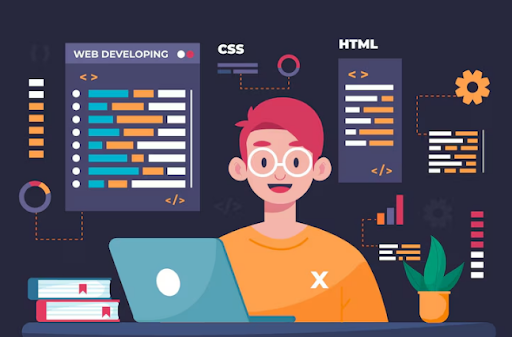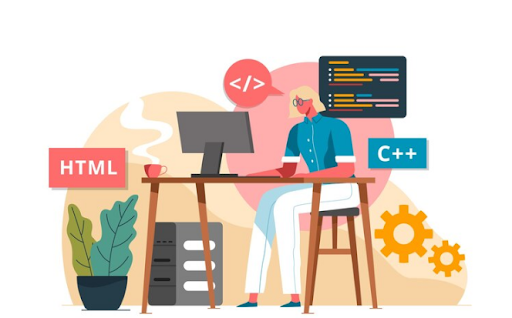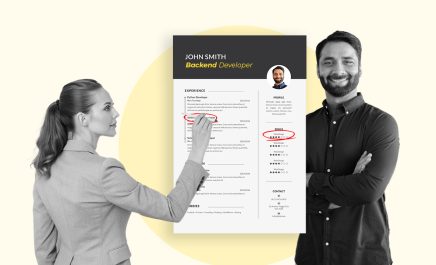Top Frameworks and Libraries for Front-End Development in 2025
- Chetan Chaand
- November 21, 2024
- 5 Minute Read

Have you ever wondered what makes websites so visually appealing and engaging? Well, front-end development is the answer!
Front-end development focuses on creating the visual and interactive aspects of websites and applications. In this process, frameworks and libraries are essential as they offer pre-built components.
These front-end frameworks of 2024 help developers create dynamic, responsive interfaces that match the demands of contemporary users. Hence, businesses must hire front-end web developers to achieve a competitive edge in the digital landscape.

Key Considerations When Choosing a Framework
When choosing a framework for front-end development, it’s important to consider these top factors, especially when you hire a front-end developer:
Project Requirements
Evaluate the particular requirements of your project, taking into account the intended user experience. Aligning the framework with project goals is essential since different frameworks are better at different things.
Scalability and Performance
Assess the framework’s capacity to expand with your application and how effectively it manages performance under stress. User satisfaction requires a framework that reduces load times and maximizes rendering.
Community Support and Documentation
A robust community and thorough documentation are imperative for troubleshooting and learning. Frameworks with vibrant communities that offer resources facilitate development.
Learning Curve
Take into account the framework’s learning curve. If your team is not familiar with a framework, the amount of time needed for training will impact project schedules. To guarantee effective development, choose a framework that balances robust capabilities and convenience of use.
Top Front-End Frameworks in 2024
Here is a quick snapshot of the most popular front-end libraries catering to different project requirements and developer preferences.
React
One of the most widely used front-end frameworks in the industry is React, which was created by Facebook (now Meta).
Features
- Component-Based Architecture: Encourages reusable UI elements to render development more efficient.
- Virtual DOM: Reduces the amount of direct DOM manipulation, improving performance.
- Rich Ecosystem: Offers a wide range of libraries and tools, such as React Router and Redux, for state management.
Advantages
- Flexibility: Allows developers to choose their libraries and tools, making it highly customizable.
- Strong Community Support: A large community provides extensive resources, tutorials, and third-party libraries.
- SEO Friendly: Server-side rendering capabilities improve search engine optimization.
Use Cases
- Single-page applications (SPAs)
- Social networking sites
Popularity
React will remain one of the most popular front-end frameworks in 2024, widely adopted by companies like Facebook, Instagram, and Airbnb due to its performance and adaptability.
Angular
An MVC framework called Angular offers an organized method for creating applications. Numerous built-in capabilities are available, including routing and two-way data binding.
Features
- Two-Way Data Binding: Streamlines the development process by synchronizing data between the model and the view.
- Dependency Injection: Promotes modular development and improves code maintainability
- Comprehensive Framework: Provides a complete solution with built-in tools for routing.
Advantages
- Sturdy Structure: Its opinionated architecture makes it perfect for large-scale applications.
- TypeScript Support: Static typing improves the quality of code.
- Strong Enterprise Support: With Google’s backing, you can ensure ongoing upgrades and support.
Use Cases
- Enterprise-level applications
- Progressive web applications (PWAs)
Popular
Business prefer hiring Angular developer, because of its extensive feature set and solid Google support.
Vue.js
Vue.js is enhanced by many additional tools and frameworks for a wide range of online applications.
Features
- Reactive Data Binding: Simplifies the process of managing data and UI updates.
- Single-File Components: Combines HTML, CSS, and JavaScript in a single file for easier management.
- Flexible Integration: This can be easily integrated into existing projects or used for building new applications.
Advantages
- Lightweight: Faster load times due to smaller file sizes
- Easy Learning Curve: Both beginner and seasoned developers can use it because of its intuitive design.
Use Cases
- Small to medium-sized applications
- Interactive user interfaces
- Rapid prototyping
Popularity
In 2024, Vue.js has become quite popular, especially among developers and entrepreneurs searching for a versatile and lightweight framework. Alibaba and Xiaomi have also adopted it.
Emerging Frameworks to Watch

Svelte
Svelte is very new to the ecosystem, but because of its unique operational capabilities, it is quickly gaining traction.
Features and Advantages
Svelte is a contemporary front-end framework that speeds up runtime performance by compiling components into highly optimized vanilla JavaScript at build time.
It offers a simple syntax, reactivity without needing a virtual DOM, and built-in state management.
Growing Adoption
Svelte’s adoption is increasing due to its ease of use and performance benefits. It is gaining popularity among developers for building user-friendly applications.
Solid.js
Solid.js is a reactive UI library that focuses on fine-grained reactivity and minimal overhead.
Features and Advantages
It provides a simple API and excellent performance by compiling templates into efficient JavaScript.
Unique Selling Points
Solid.js stands out for its ability to deliver high performance with a small footprint. This attribute renders it ideal for applications requiring speed and efficiency.
Popular Front-End Libraries in 2024
jQuery
jQuery is a fast, lightweight JavaScript library that simplifies HTML document manipulation for web development.
Relevance in Modern Development
Due to its ease of use in managing events and manipulating the DOM, jQuery is still important in 2024, even with the emergence of contemporary frameworks. It offers a simple method for incorporating interaction into web pages without requiring a lot of code.
Common Use Cases
jQuery is frequently used for AJAX queries and form validation. This makes it a popular option for improving user experience on smaller projects and outdated systems.
D3.js
D3.js is a powerful JavaScript library for creating dynamic, interactive data visualizations.
Data Visualization Capabilities
Using web standards, D3.js is excellent at producing interactive data visualizations. It enables developers to execute data-driven transformations and attach data to the DOM.
Examples of Use
Interactive charts and intricate dashboard representations in business intelligence systems.
Lodash
Lodash is a JavaScript utility library that provides helpful functions for enhancing code efficiency and readability.
JavaScript Utility Functions
Lodash offers a collection of utility functions that simplify typical programming tasks, such as working with arrays and objects.
Improving Development Efficiency
Lodash helps developers write cleaner, more maintainable code by providing deep cloning and debouncing techniques.
Frameworks for Specific Needs

Next.js
Server-side rendering (SSR) and static site generation (SSG) are supported by the powerful React framework Next.js.
SSR allows pages to be rendered on the server for improved SEO and faster initial load times, while SSG pre-renders pages at build time for maximum efficiency and reduced server load.
However, developers can select the rendering technique that works best for their apps due to the flexibility of Next.js.
Gatsby
Gatsby is a React-based framework that uses static site creation to enhance speed.
Developers can effectively gather data from various sources due to its smooth integration with GraphQL.
Gatsby is perfect for content-rich apps and blogs because this combination produces websites that load quickly and have outstanding SEO potential.
Takeaway
Businesses can hire a front-end web developer in India to create responsive user interfaces and enhance overall UX.
Digitally, the front-end developer ecosystem is expanding and enhancing pre-existing libraries and frameworks. To remain relevant and viable in 2024, front-end developers should try to master a new Javascript library or framework.
Trying to stay up with the constant shifts in front-end development can be overwhelming. However, one of the most important steps in creating the newest and best product is keeping up with the trends.

Thank you for submitting the details!
We will keep your information safe. Feel free to contact us with any questions at hello@uplers.com
Please check your email for next steps shared by Robert.

















